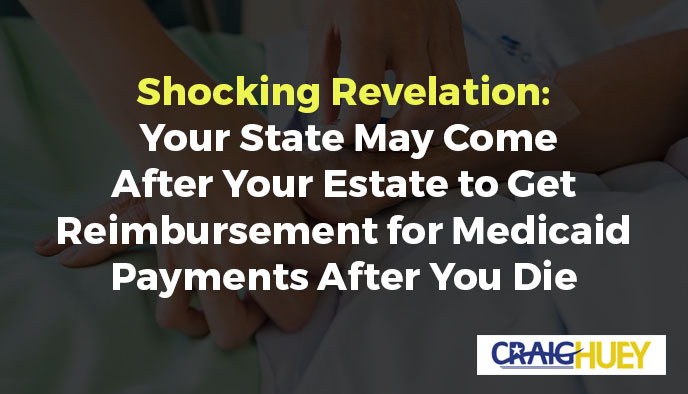Many Americans who signed up for health insurance under Obamacare were placed into their state’s Medicaid program because of their income.
Perhaps you were one of them … or perhaps you know someone who was.
Receiving free healthcare under expanded Medicaid programs is one reason why so many people like Obamacare … and don’t want to see it repealed.
But there’s something those folks who were placed into their state’s expanded Medicaid program weren’t told…
State Medicaid programs are required by law to recover certain Medicaid benefits paid on behalf of a Medicaid enrollee … after the enrollee dies.
Yes … you read that right.
For Medicaid recipients aged 55 or older, states must seek reimbursement from the enrollee’s estate for payments made for:
- Nursing facility services
- Home and community-based services
- Related hospital and prescription drug payments
States also have the option to seek reimbursement for all other Medicaid services provided – with the exception of a specific type of Medicare cost-sharing.
Currently, the following 10 states seek reimbursement of all Medicaid payments made to enrollees aged 55 and older:
- California
- Colorado
- Iowa
- Massachusetts
- Nevada
- New Jersey
- New York
- North Dakota
- Ohio
- Rhode Island
If you live in one of these states and have a life insurance policy – or if you own a home – the state can recover their Medicaid payments from those assets after you and your spouse die … even if you put them into a trust.
There are 3 restrictions to states’ ability to raid a deceased Medicaid recipient’s estate. States may not recover Medicaid payments from the estate of a deceased enrollee who is:
- Survived by a spouse
- Survived by a child under age 21
- Survived by a blind or disabled child of any age
States are also required to have procedures in place for waiving estate recovery when doing so would cause “an undue hardship.”
Of course, the burden of proving “undue hardship” is on the heirs of the deceased Medicaid recipient.
To learn more about how your state can use estate recovery rules and liens against real estate and other property to recover Medicaid payments, go to this web site. Click here.
What do you think? Email me at [email protected]
Here are the rest of this week’s articles:
- Twisting Truth for Political Gain: 9 Shocking Facts Every American Should Know about the Mueller Investigation … and about His Congressional Testimony [Videos]
- What Congressman Rand Paul (R-KY) Said to Me about the Deep State
- The Coyote Principle: An Illustration of the Difference Between Big Government and Limited Government

